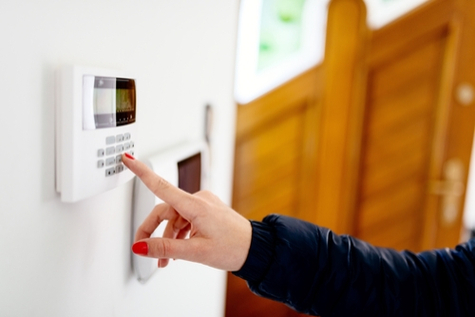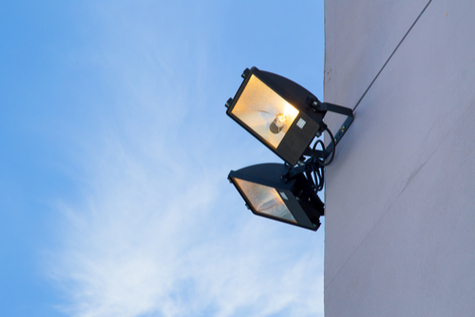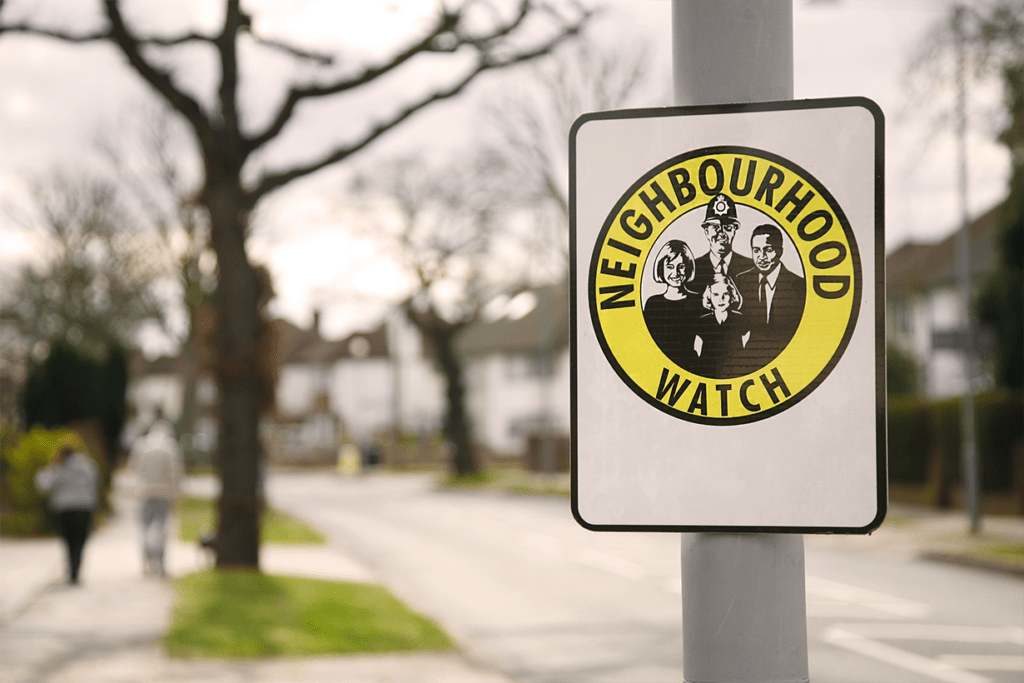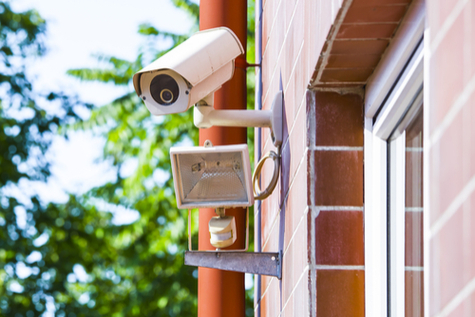
Follow our advice to make sure your home stays secure whether you're at home or away.
Your home is your castle, your sanctuary and probably also your biggest investment. That’s why it’s so important to keep it secure whether you’re at home or away.
One aspect of securing your home is to take out the right insurance policy. This will cover any damage to the building itself and protect your belongings from theft, or from a disaster like a flood or fire.
But just claiming on your insurance isn’t the solution. It means the fuss of replacing everything and paying higher premiums in the future. Prevention is better than the cure. Follow these essential steps and stay safe at home.
Staying safe from crime

1. Secure your boundaries
Keeping your doors locked and windows shut is the best way to keep opportunistic burglars out. That includes locking the front door when you’re in the garden, keeping windows closed and sheds and garages safely locked up. It’s especially important to keep outbuildings secure if they contain ladders and tools that would help someone break into your home.
Make sure that your fences and gate are in a good state of repair. If a burglar is looking for a property to break into then the one with old, weak fences will look like an easier target.
2. Don’t leave temptation on display

Many burglaries are opportunistic so make sure any expensive items, car keys, purses and wallets are kept out of sight if they are easily visible from the outside.
3. Install a safe
If you have items of particular value then consider buying a safe for extra protection and attach it securely to a solid surface. Safes are a great additional level of security for smaller precious items and documents.
4. Buy a new-build property
One of the benefits of buying a new home is that they are usually built with the latest security measures in mind. Older properties may have weaker windows, doors and locks, while a newly constructed property will be built to the latest building regulations and so will often be harder for a thief to gain entry to.
Most of our new build properties come equipped with a number of security measures designed to keep you safe at home, including:
- Keyless Egress door locks which do not require keys to unlock from the inside making for a quick exit in the event of an emergency
- Windows fitted with locks that require a key and lockable fire escapes
- Carbon monoxide & smoke detectors installed in the most effective places in the home
It’s also important to note that many new build developments are built and designed with safety and security in mind. This includes high levels of visibility from homes, as well as 20mph streets.
5. Install lighting

A lot of burglars take advantage of the darker days of winter, so installing security lights can make their task harder. The Met Police say that burglars are much less likely to break into a home where there is external lighting.
6. Join (or set up) a Neighbourhood Watch scheme
If your local area is signed up to an official Neighbourhood Watch scheme then your home will be safer. Thieves should be deterred by the signs and your home insurance premiums will be reduced.

Staying safe from disaster
You can make sure your home is protected from thieves but there are also steps you can take to keep yourself and your possessions safer from disaster. Here are a few top tips:
1. Get a fire check
Many local fire stations will send out their staff to check your home for fire risks. They will also be able to offer advice on avoiding the main fire threats, including smoking in bed, candles by curtains, unsafe cooking and overloaded plug sockets.
2. Check your fire alarm
Most new-build homes will have fire alarms that are wired into the mains with a battery backup. However, it’s still important to check yours is functioning properly. Regular tests can save lives. An estimated 35 people die each year because their alarms weren’t working.
It’s important that you buy and install fire extinguishing equipment. Place them in kitchens and near large amounts of electrical equipment.
3. Know your flood risk
You can find out how at-risk you home is from flooding by visiting the Government’s official flooding page. This will tell you how likely flooding is in your area, meaning you can prepare properly. You will also be able to sign up for flood alerts, giving you extra warning if disaster is coming.
Staying safe when you're away
Leaving your home for a holiday will usually not invalidate your insurance policy. You should check the small print of your specific insurance but most providers allow the property to stand empty for 30 days without any lapse in cover.
If you’re going away for longer, then it’s a good idea to consider empty home insurance. This will keep your home covered in your absence.
Here are a few steps you can take to keep your home safe during your holiday.

1. Don’t share it
It’s exciting to get away and the temptation to post photos and details all over social media can be strong. This can also be an easy way for thieves to identify an empty house and target it for a burglary.
Consider postponing sharing your photos until your return. Or make sure your social media accounts are private so that only people you trust will be able to see your holiday photos.
2. Make it look like you’re in
The vast majority of burglaries take place when the homeowner is away, so you need to make it look like you’re in. Leaving the hall light on isn’t fooling anyone; you need to be cleverer than that. For around £10 you can buy timer switches, which can turn your TV and lights on at different times of the evening. Or you can use smart lighting which can be controlled remotely via an app.
3. Get your neighbours to help
You could also ask a neighbour to park on your drive while you’re gone. Ask them to clear away any post in letter boxes or anything that gives away that the house is empty.
4. Curtains won’t fool anyone
Don’t assume that you can create the illusion of a busy bustling home by simply drawing some of the curtains. In fact, leaving the curtains drawn during the day can actually be quite a giveaway that you’re away. You’re better off using light timers.
5. Get the postman on board
If you’re going away for a lengthy period and you’re worried that the post will pile up, you can pay Royal Mail to hold onto your post until you return. Ask at the Post Office about the Keepsafe service.



